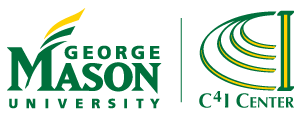Registration
The URSW workshop will be held on October 26th, 2009, and it will be a full-day event scheduled to start 9:00 local time and to finish by 5:00 pm. In order to attend the workshop, it is necessary to register at the ISWC 2009 registration webpage and to select the option of attending the URSW.
Keynote Speaker
 |
Leo Obrst is principal artificial intelligence scientist at MITRE's Command and Control Center, where he created and led, but now advises the Information Semantics group. His research interests and applications addressed include: semantic interoperability and information integration, knowledge management, semantic search, community knowledge sharing, natural language processing, ontology and automated reasoning for decision support, situational awareness, command and control, and intelligence analysis. Leo is on the Executive Council of the International Association for Ontology and its Applications (IAOA) and the Executive Committee of the National Center for Ontological Research (NCOR), and was a member of the W3C Web Ontology Working Group (OWL). Leo is on the editorial board of the journal of Applied Ontology, and is co-author of the book The Semantic Web: The Future of XML, Web Services, and Knowledge Management. He has helped organize the Formal Ontology in Information Systems (FOIS) and Ontology for the Intelligence Community (OIC) conferences. Leo is a co-founder of the Ontology Summit conference series, which NIST, Ontolog, and others have organized since 2006. Along with Mike Dean (BBN), Leo is the local organizer for the ISWC 2009. |
Workshop Agenda
09:00 |
KEYNOTE ADDRESS |
Coordinators: Ken Laskey and Paulo Costa |
9:05 - 10:00 |
Formal Challenges of Uncertainty: Spatial Nearness, Parts, Connectivity, Vagueness. Abstract
This is going to be a very interesting speech. Leo will not only present the nice things he's been doing for the SW, but will also let us know about his views on how a principled representation of uncertainty can make a difference on some of the SW applications. |
Leo Obrst
|
10:00 - 10:20 |
COFFEE BREAK |
|
10:20 |
SESSION 1 |
Coordinators: Claudia D'Amato and Paulo Costa |
10:20 - 10:50 |
Axiomatic First-Order Probability Abstract
Most languages for the Semantic Web have their logical basis in some fragment of first-order logic. Thus, integrating first-order logic with probability is fundamental for representing and reasoning with uncertainty in the semantic web. Defining semantics for probability logics presents a dilemma: a logic that assigns a real-valued probability to any first-order sentence cannot be axiomatized and lacks a complete proof theory. This paper develops a first-order axiomatic theory of probability in which probability is formalized as a function mapping Gödel numbers to elements of a real closed field. The resulting logic is fully first-order and recursively axiomatizable, and therefore has a complete proof theory. This gives rise to a plausible reasoning logic with a number of desirable properties: the logic can represent arbitrarily fine-grained degrees of plausibility intermediate between proof and disproof; all mathematical and logical assumptions can be explicitly represented as finite computational structures accessible to automated reasoners; contradictions can be discovered in finite time; and the logic supports learning from observation. |
Kathryn Laskey |
10:50 - 11:20 |
Probabilistic Ontology and Knowledge Fusion for Procurement Fraud Detection in Brazil Abstract
To cope with society’s demand for transparency and corruption prevention, the Brazilian Office of the Comptroller General (CGU) has carried out a number of actions, including: awareness campaigns aimed at the private sector; campaigns to educate the public; research initiatives; and regular inspections and audits of municipalities and states. Although CGU has collected information from hundreds of different sources - Revenue Agency, Federal Police, and others - the process of fusing all this data has not been efficient enough to meet the needs of CGU’s decision makers. Therefore, it is natural to change the focus from data fusion to knowledge fusion. As a consequence, traditional syntactic methods must be augmented with techniques that represent and reason with the semantics of databases. However, commonly used approaches fail to deal with uncertainty, a dominant characteristic in corruption prevention. This paper presents the use of Probabilistic OWL (PR-OWL) to design and test a model that performs information fusion to detect possible frauds in procurements involving Federal money. To design this model, a recently developed tool for creating PR-OWL ontologies was used with support from PR-OWL specialists and careful guidance from a fraud detection specialist from CGU. |
Rommel Carvalho, Kathryn Laskey, Paulo Costa, Marcelo Ladeira, Laécio Santos and Shou Matsumoto |
11:20 - 11:40 |
Position paper - Uncertainty Reasoning for Linked Data Abstract
Linked open data offers a set of design patterns and conventions for how to share data across the semantic web. In this position paper we enumerate the uncertainty representation and reasoning issues which apply to linked data and approaches to tackling them. We suggest the need for vocabularies to enable representation of link certainty, to handle ambiguous or imprecise values and to express sets of assumptions based on named graph combinators. |
Dave Reynolds |
11:40 - 12:00 |
Position Paper - BeliefOWL: an Evidential Representation in OWL Ontology Abstract
In semantic web environment, ontologies have become used to represent a domain of discourse to facilitate knowledge sharing and information exchange. Many languages have been developed to represent ontologies, among them the web ontology language (OWL) which cannot capture the uncertainty about the concepts in a domain. To address the problem of representing uncertainty in semantic web, we propose in this paper, the theoretical aspects of our tool BeliefOWL which is based on evidential approach. It focuses on translating an ontology into a directed evidential network by applying a set of structural translation rules. Once the network is constructed, belief masses will be assigned to the different nodes in order to propagate uncertainties later. |
Amira Essaid and Boutheina Ben Yaghlane |
12:00 - 1:20 |
LUNCH |
|
1:20 |
SESSION 2 |
Coordinator: Thomas Lukasiewicz |
1:20 - 1:50 |
Ontology Granulation Through Inductive Decision Trees Abstract
The popularity of ontologies for representing the semantics behind many real-world domains has created a growing pool of ontologies on various topics. While different ontologists, experts, and organizations create the vast majority of ontologies, often for closed world systems, their domains frequently overlap in an open world system, such as the Semantic Web. These overlapping ontologies sometimes model similar or matching theories, that may be inconsistent. To assist in the reuse of these ontologies, this paper describes a technique for enriching manually created ontologies by supplementing them with inductively derived rules, and reducing the number of inconsistencies. The derived rules are translated from decision trees created by executing a tree based data mining algorithm with probability measures over the data being modeled. These rules can be used to revise the ontology adding a higher level of granularity, in order to identify possible similarities missed by the original ontologists. We then discuss how this may be applied to ontology matching. We demonstrate the application of our technique by presenting an example, and discuss how various data types may be treated to generalize the semantics of an ontology for an open world system. |
Bart Gajderowicz and Alireza Sadeghian |
1:50 - 2:20 |
Evidential Nearest-Neighbors Classification for Inductive ABox Reasoning Abstract
In the line of our investigation of inductive methods for Semantic Web reasoning, we propose an alternative way for approximate ABox reasoning based on the evidence and the analogical principle of the nearest-neighbors. Once neighbors of a test individual are selected through some distance measures, a combination rule descending from the Dempster-Shafer theory can join together the evidence provided by the various neighbor individuals in order to predict unknwn values in a learning problem. We show how to exploit the procedure in the problems of determining unknown class- and role-memberships or fillers for datatype properties which may be the basis for many further ABox inductive reasoning algorithms. |
Nicola Fanizzi, Claudia d'Amato and Floriana Esposito |
2:20 - 2:50 |
Combining Semantic Web Search with the Power of Inductive Reasoning Abstract
Extensive research activities are recently directed towards the Semantic Web as a future form of the Web. Consequently, Web search as the key technology of the Web is evolving towards some novel form of Semantic Web search. A very promising recent approach to such Semantic Web search is based on combining standard Web search with ontological background knowledge and using standard Web search engines as the main inference motor of Semantic Web search. In this paper, we propose to further enhance this approach to Semantic Web search by the use of inductive reasoning techniques. This adds especially the important ability to handle inconsistencies, noise, and incompleteness, which are very likely to occur in distributed and heterogeneous environments, such as the Web. We report on a prototype implementation of the new approach and extensive experimental results. |
Claudia d'Amato, Nicola Fanizzi, Bettina Fazzinga, Georg Gottlob and Thomas Lukasiewicz |
2:50 - 3:10 |
Position Paper - Fuzzy Taxonomies for Creative Knowledge Discovery Abstract
A systematic form of creative knowledge discovery is outlined, requiring taxonomies to generalise knowledge structures and mappings between taxonomies to find parallels between knowledge structures from different domains. These share many of the features needed to handle uncertainty in the semantic web, and results will be relevant to the URSW community. |
Trevor Martin, Siyao Zheng and Andrei Majidian |
3:10 - 3:30 |
COFFEE BREAK |
|
3:30 |
SESSION 3 |
Coordinator: Trevor Martin |
3:30 - 4:00 |
A Learning Algorithm for Probabilistic Description Logic Abstract
Probabilistic Description Logics are the basis of ontologies in the Semantic Web. Knowledge representation and reasoning for these logics have been extensively explored in the last years; less attention has been paid to techniques that learn ontologies from data. In this paper we report on algorithms that learn probabilistic concepts and roles. We present an initial effort towards semi-automated learning using probabilistic methods. We combine ILP (Inductive Logic Programming) methods and a probabilistic classifier algorithm (search for candidate hypotheses is conducted by a Noisy-OR classifier). Preliminary results on a real world dataset are presented. |
José Eduardo Ochoa Luna and Fabio Cozman |
4:00 |
Plenary Discussion |
Coordinators: Kathryn Laskey and Michael Pool |
4:00 - 4:50 |
The URSW workshop series - What's next for the Uncertainty Representation and Reasoning for the SW community? Abstract
This is going to be a very interesting debate, in which we would explore the future of uncertainty reasoning in the Semantic Web and the best ways to make our community stronger, more active, and collaborative. Your ideas are enthusiastically welcomed. |
All Participants |
4:50 - 5:00 |
Closing remarks |
Kenneth Laskey and Paulo Costa |
5:00 |
END OF URSW ACTIVITIES |
|
Remarks:
- Technical paper authors were assigned 25 minutes to present their work plus 5 minutes for questions.
- Position paper authors were assigned 15 minutes to present their ideas plus 5 minutes for questions.

